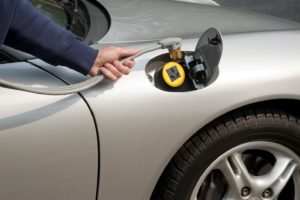If you have a plug-in electric vehicle (PEV), you may grow frustrated trying to find public charging stations. Hire a licensed electrician to install your own personal charging station or outlet at your residence. Here are five facts to know about the installation of home car chargers.
- Car-Charger Wiring May Require a Permit
Many cities and municipalities — including Chicago — require homeowners to obtain electrical permits before they have any professional wiring-related work for their electrical systems. Since you may need a new circuit-breaker box in your garage or a new branch line run to power your charger, you’ll most likely need a permit to install a car charger in Chicago.
Your electrician can file for your permit online and get approval for your charger in only one day using Chicago’s Easy Permit Process. Chicago’s Department of Buildings manages The Easy Permit Process.
If your home is located in one of Chicago’s suburbs, your electrician will know whether you need a permit or not. Your electrician can obtain any necessary permits for you whether you’re in the city or in the suburbs.
- Charger Designs Have Varying Power Needs
Residential PEV chargers can run off of 120-volt or 240-volt power, depending on the styles of the chargers. Before installing your charging equipment, check with your PEV manufacturer or your owner’s manual to determine the correct type of charger to install for your vehicle.
Electricians can install one of two basic types of PEV chargers in your garage or carport. Level 1 electric vehicle supply equipment (EVSE) are installed as an outlet or a charging station. Level 1 EVSE is powered with a 120-volt electrical current. An outlet-style Level 1 charger uses the same energy as a toaster, while the charging-station-style charger uses the equivalent of one and one-half toasters.
Level 2 charging stations require a 208-volt to 240-volt power supply. The power the Level 2 charging station uses is the same as the power necessary to run three to six toasters.
Level 1 outlets and stations can charge cars with enough power to drive up to five miles per one hour of charge time. Level 2 charging stations power PEVs with enough juice to travel 10 to 60 miles per hour of charge time.
- Costs for Car-Charger Installations Are Variable
The costs for EVSE components and installation depend on the type of charging equipment you need to purchase and the complexity of the electrical work required to install it. For a Level 1 outlet, you may only need to have a new dedicated branch circuit wired into your existing electrical system.
A Level 2 charging station requires a dedicated electrical circuit of at least 20 to 100 amps. If your home is not wired for 240-volt service, you’ll need electrical upgrades to support your Level 2 charging station.
- Electric Vehicle Incentives May Cover Charger Costs
Incentives are available for people who drive PEVs. Tax credits, rebates, and other incentive programs can help offset the costs of installing a PEV charger.
The federal government currently offers a $7,500 federal tax credit to consumers who purchase PEVs. However, vehicles from manufacturers who have sold more than 200,000 PEVs are exempt from eligibility for the tax credit once they reach the sales milestone.
Chicago and the State of Illinois have offered various incentive programs to residents who purchase PEVs. However, the incentive programs constantly change or reach the limits of their funding in the state, so check with your city or state to find out if you’re eligible for any current PEV incentives.
- Professionals Should Perform Car-Charger Installations
Avoid the DIY approach to wiring or installing your PEV charger or charging station. You could irreparably harm yourself, your home, and your PEV with a faulty charger-wiring job.
Since PEV chargers need to be on dedicated branch circuits, you must be certain that no other appliance or device uses power from the same branch circuit as the charger. A licensed electrician knows how to tell whether other electrical devices are plugged into the same line that you wish to use for your charger.
Licensed electricians wire your charger according to code. If you don’t meet code with your homemade wiring job, you could fail to pass a future home or electrical inspection. You could put your home at risk of fire or electrical service interruption.
Hire a qualified electrician to install your PEV charging equipment. Your vehicle and your home will both run smoothly after a professional car-charging installation.
Schedule installation of your car charging station in Greater Chicago by contacting A To Z Electric Co. today. We can upgrade your wiring or add a new branch circuit to accommodate your EVSE, and you’ll enjoy the freedom and convenience of having your own personal PEV charger.

